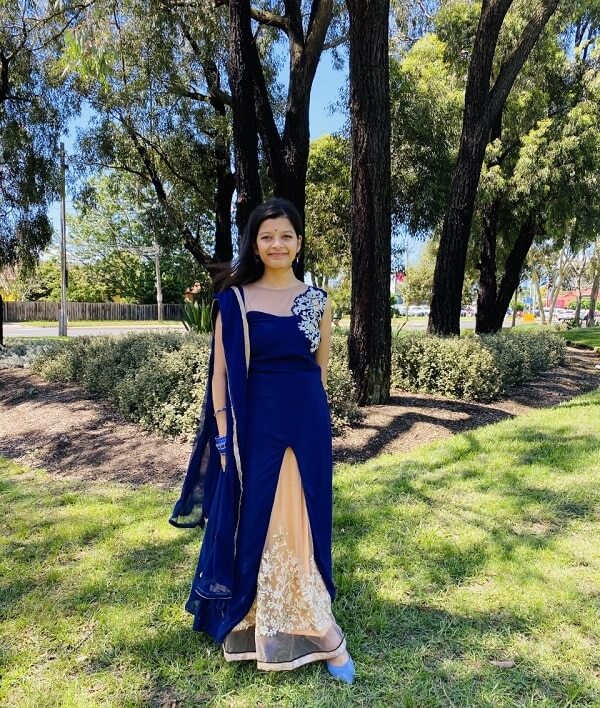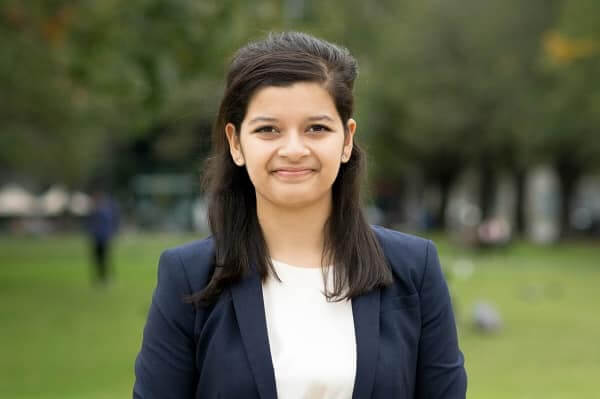After three gruelling years of law school, Melbournian Priyanka Banerjee gets to walk away with a smile: she has become the first Indian Australian woman in the history of her university to win the Supreme Court Prize. It’s an honour reserved for the top ranked student of the Juris Doctor degree, and the Melbourne Law School alum is understandably pleased.
Now working as a law graduate at Allens within their Disputes and Investigations practice, the 25-year-old shares her insights on diversity in the field with Indian Link.
Congratulations on your graduation. Tell us about the Supreme Court Prize that you were awarded. How did you feel, getting the award?
Receiving the award has been very exciting and I feel honoured to have this recognition of all of the work over the past three years.
The law is something that affects everyone, every day. I was interested in it because being able to effectively navigate the law can be a really important way to help other people, help solve problems, and advocate for marginalised voices.
You’ve no doubt been following the recent debate about women’s issues at work (eg Brittany Higgins) and in society in general. What are your thoughts, as a young woman in the profession about to enter full-time work?
I am encouraged by the growing conversation in society around creating safer, inclusive workplaces for women. These kinds of conversations, around calling out perpetrators of sexual harassment, and believing and supporting women, all help transform the culture of silence and complicity to one which truly reflects a “zero tolerance” approach.
But it cannot end at the stage of having the conversation. Active steps need to be taken — in society and in workplaces — to ensure that women can speak up, that the consequences are for the perpetrators, not the victims, and that women can go to work and live their lives without the fear of harassment and abuse.

READ ALSO: Legally Brown: Championing diversity in the legal world
In the same regard, what are your thoughts about being a young woman of colour in Australia?
Cultural diversity has a long way to go still in law but again, there are encouraging signs and conversations that this will improve. It is really important to have diverse voices, including cultural and linguistic diversity, in law as it brings forward different perspectives, arguments and ultimately, new and more nuanced developments in the law.
How can we encourage more Indian-origin women to take up law?
It can be a little confronting entering law school when it looks so different from you and seems so different from your background. This is why clear commitments to diversity, with tangible action is critical, in the form of academic appointments and promotions of women of colour in legal practice, and integrating intersectional conversations about gender and ethnicity in law schools and workplaces, for example. These help consolidate that law is a space for women of colour and that you can flourish in it.
What are your thoughts about the situation in India at this very moment?
Most of my extended family still live in India and I still regularly engage with what’s happening over there. It has been a real tragedy seeing the effects of the pandemic there, particularly the most recent wave, which has highlighted the importance of genuine political leadership that does not seek to advance a sectarian nationalist agenda at the expense of policies which can genuinely lift the millions of vulnerable people there into safety.

What are you currently reading/watching/listening to?
I am currently reading Development as Freedom by Amartya Sen which has been really interesting! This has been on my ‘to read’ list for a while now, and I have just gotten around to actually reading it. Even though it’s a book that pre-dates the 21st century, it has been fascinating to see how the frameworks and ideas that Sen presented in the book at the time, including about capabilities, political freedoms and empowering women as social agents, still remain very relevant and useful for policy design now in 2021.
In terms of shows I’m watching at the moment, I’m a MasterChef tragic so that’s always a great staple during the week. It’s great to watch the diverse cuisines and backgrounds on the show (though it always makes me want to eat the delicious food that is plated up by the contestants rather than my own dinners at home!), and I love Melissa Leong as a judge – I think she is incredible and it is also a big step forward for diversity on primetime television.
READ ALSO: Molina Asthana appointed Vice President of the Law Institute of Victoria
Link up with us!
Indian Link News website: Save our website as a bookmark
Indian Link E-Newsletter: Subscribe to our weekly e-newsletter
Indian Link Newspaper: Click here to read our e-paper
Indian Link app: Download our app from Apple’s App Store or Google Play and subscribe to the alerts
Facebook: facebook.com/IndianLinkAustralia
Twitter: @indian_link
Instagram: @indianlink
LinkedIn: linkedin.com/IndianLinkMediaGroup




